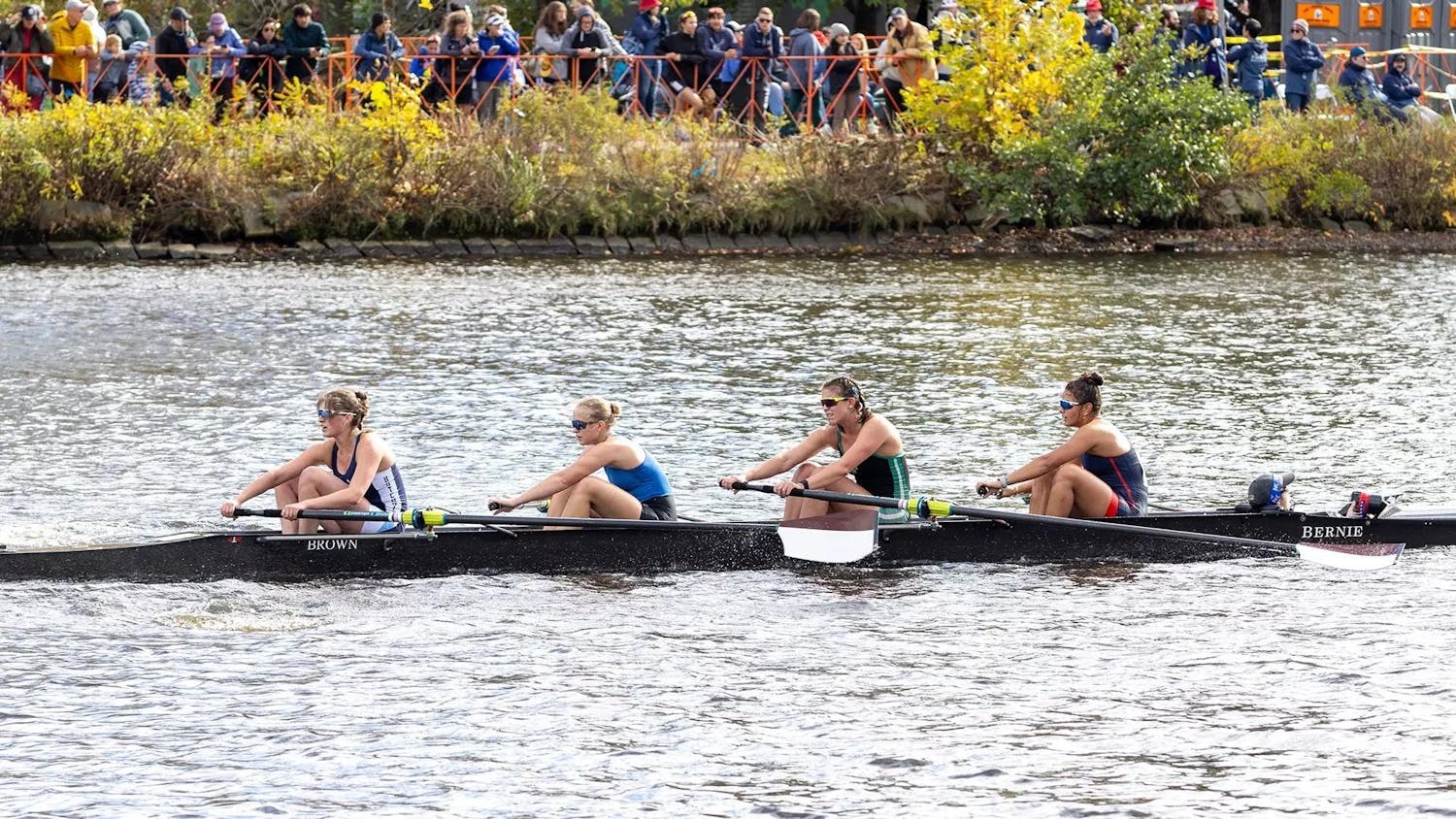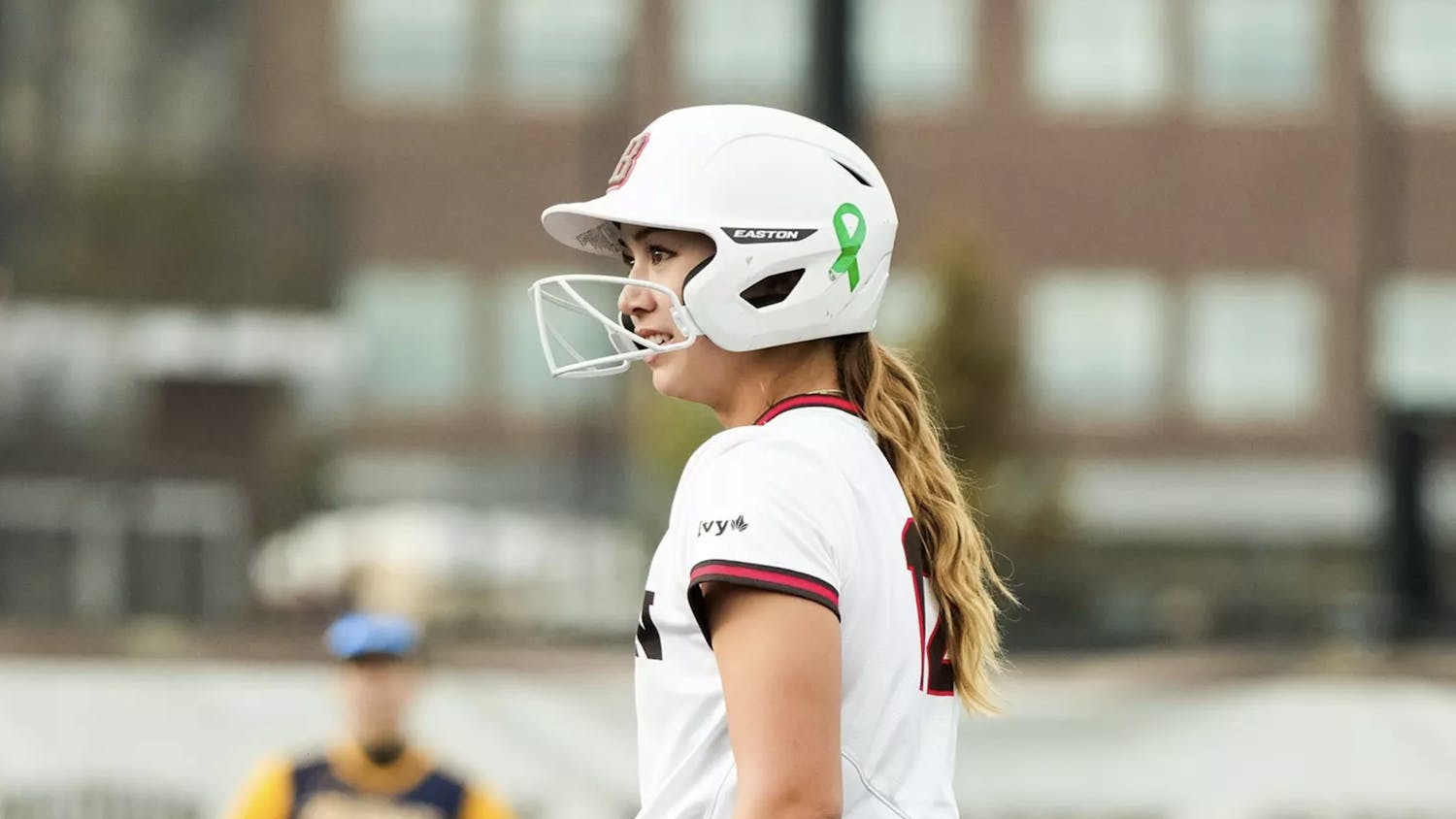When Digit Murphy, former head coach of the Brown women’s hockey team, coached the Boston Blades to a Canadian Women’s Hockey League championship, some things stood out to her.
First, the only professional women’s hockey team in the United States, which included many Olympic-caliber players, had disappointingly weak support. Despite its success, the team drew about 50 fans for a typical game, even in hockey-crazed New England. For comparison, the Boston Bruins have averaged 18,482 spectators at home games this season, according to the National Hockey League attendance report.
She also noticed a trend in the CWHL and other women’s professional sports leagues: They were run by men.
“We don’t really know what women’s sports look like because no one really has ever sat down and analyzed what women running a women’s athletic event looks like,” Murphy said.
Murphy then decided to attempt to change this by creating a league that employed women in all positions. After decades dedicated to sports as a player and a coach, Murphy is blazing a new trail as a co-founder of the United Women’s Lacrosse League, the first professional women’s league for the sport in the country.
Murphy’s sport was always hockey. She was a player at Cornell in the ’80s and went on to serve as the head coach for the Brown women’s team for 22 years beginning in 1990, helping the program establish itself as a powerhouse in the ECAC. Starting with the 1992-93 season, Brown had 10 straight winning seasons, five ECAC regular season or tournament titles and an appearance in the 2002 national championship game. She became the winningest coach in Division I women’s hockey in 2006 and totaled 318 wins in her years at Brown. Five years after her retirement from NCAA hockey, she still stands as the 10th-most victorious coach in league history.
So why lacrosse?
Murphy and Aronda Kirby, general manager for the Boston Blades from 2012 -2015, began to look at different ways to approach women’s sports. They liked the idea of a league that placed emphasis on community impact and used sports as the organizing mechanism. This was an inversion of the model of men’s professional sports, where players are paid for performing on the field and community appearances are a secondary responsibility.
When Murphy discussed the idea with a colleague from the sporting goods company STX, the colleague suggested that the model could work well for a lacrosse league.
“We originally started thinking about it from a hockey standpoint, but when you look at hockey there’s just so much of an expense because you have the rink and facilities costs,” she said. “When you look at lacrosse, it’s much less of an outlay of capital to play the games because you aren’t on a rink and the equipment (costs) less.”
In addition to lower costs, Murphy found that the state of the sport would also make a lacrosse league the best fit for their vision.
“Mostly women coach it right now,” she added. “It doesn’t have an Olympic component yet, so our players are hungry to play post-college.”
With that, the foundation for the UWLX had been laid with Murphy and Kirby as co-founders and STX as an equipment sponsor. The league hired former Penn State and U.S. National Team member Michele DeJuliis as league commissioner.
The league is connected closely with the Play It Forward Sport Foundation, also founded by Murphy and Kirby. Play it Forward’s mission is to “create and enhance more opportunities for women as professional athletes, as managers and as leaders in the profession,” according to the foundation’s website.
The Play it Forward model involves encouraging and compensating players to participate in community outreach through appearances, clinics and camps. In turn, the community impact will generate support and renown for individual teams and the league in general.
UWLX players won’t be paid initially, but the future plan is to pay players using this model once the league has support from corporate sponsors and fans through ticket sales. As sponsorships increase, coaches and general managers should also be paid more, Murphy said.
“When we start a league, we create over 100 opportunities for women between the athletes and the leadership positions,” Murphy said. “We have that pay equality component in mind in every decision we make.”
After a year of preparation, the league launched a player draft that drew 160 interested players. The four UWLX teams — Baltimore, Boston, Long Island and Philadelphia — will begin their nine-week season on May 28.
For now, the league’s games will be played at recruiting tournaments where there is already a large base of lacrosse fans, but Murphy hopes to develop a more venue-centric fan experience in the future.
“I firmly believe that if we’re going to be filling the stands with women, the way that we’re going to view sports is not in mass. We’re not going to want 30 games,” she said. “We’re going to want smaller quantities but we’re going to want quality.”
Time will tell if the innovative UWLX model will change women’s professional sports the way Play It Forward hopes, but Murphy’s vision and experience in the world of women’s sports is surely a source of optimism for the league.
“I’m hoping that the first year we get all the bugs out, and the second year’s even more well-received,” she said. “It’s a heavy lift and it’s a work in progress, but at the end of the day, it has to start somewhere.”




